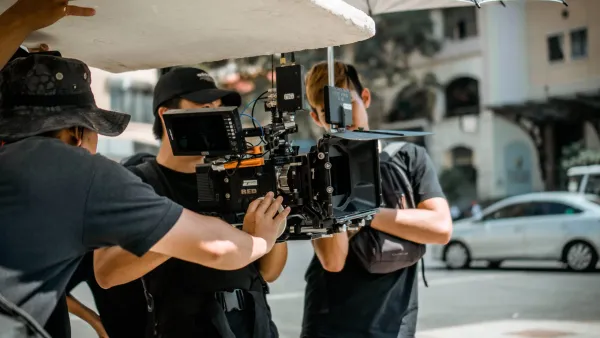Interview | Esteban Vial & Florence Valero (Directors of 700K Short Film)
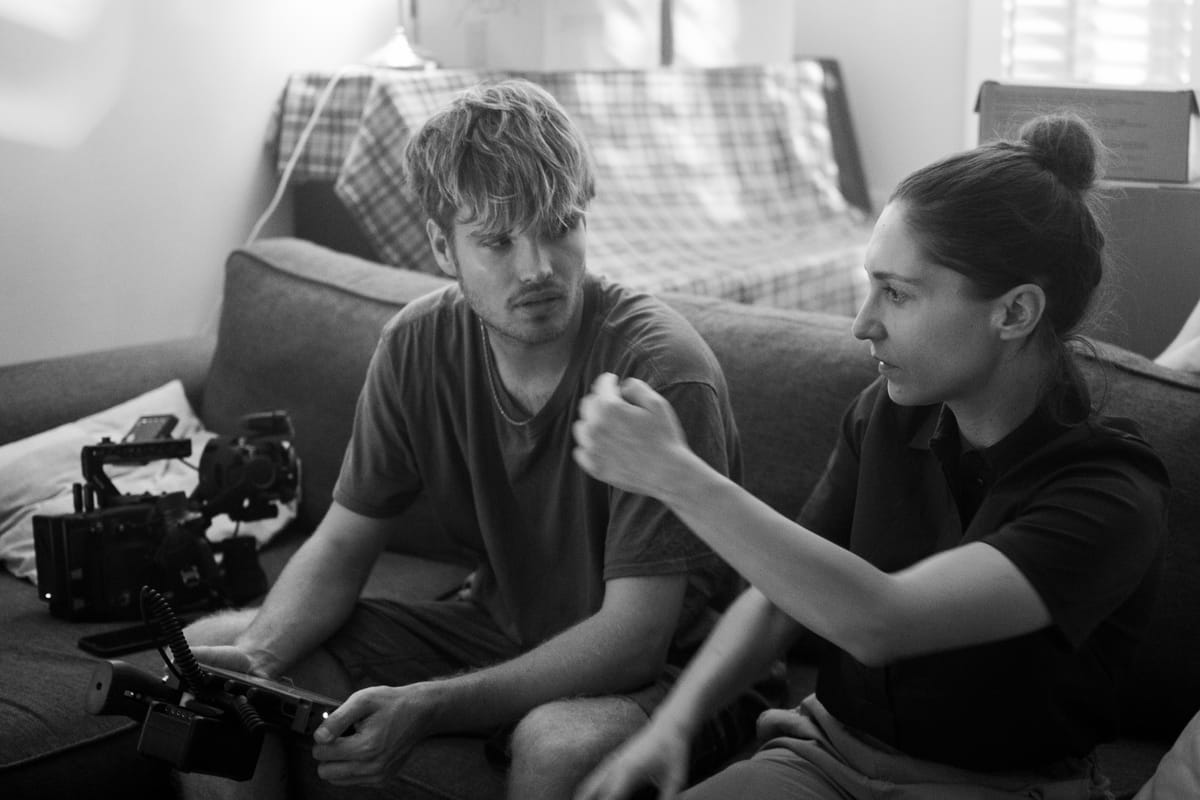
One summer afternoon on the outskirts of Paris, 26-year-old Léo receives a sudden flood of messages. He learns that his girlfriend, Victoria, an influencer with 700,000 followers, with whom he was on a road trip 10 days earlier, has just gone missing. Léo seems to be the right suspect for Victoria's community. In his small studio, in front of his phone, he'll have to face his trial through social networks.
Directors: Florence Valero and Esteban Vial
Genre: Thriller
Runtime: 12 Minutes.
Can you tell us a bit about yourself and your filmmaking journey?
Florence: My name is Florence Valero, I am a writer published in France and Belgium, also an actress on national theatre and some independent short movies released on screen, TV and festivals. I’ve also directed fictions for french radios and the RTBF. I helped Esteban to develop a script inspired by the Gabby Petito case. Our short movie is just “based” on the case and deals with a different point of view and mood. Esteban and I were together interested in the social media pressure on the life of a person… We could also add a “French touch” to this story which happened in the United States.
Esteban: My name is Esteban Vial. I've been an actor, screenwriter, and director for a few years now. I started with stand-up comedy, then moved on to creating short humorous fiction, and eventually acted in various projects for French television, cinema, Prime Video, Disney, and more. I wanted to make my first short film about a subject that was particularly important to me. That's why, when I came across the Gabby Petito case and saw how the investigation was gaining traction on social media, I felt there was a meaningful story to explore. Florence was the perfect person to help me develop this topic, I had knowledge of social media codes, and Florence brought a sense of dramaturgy that I lacked.
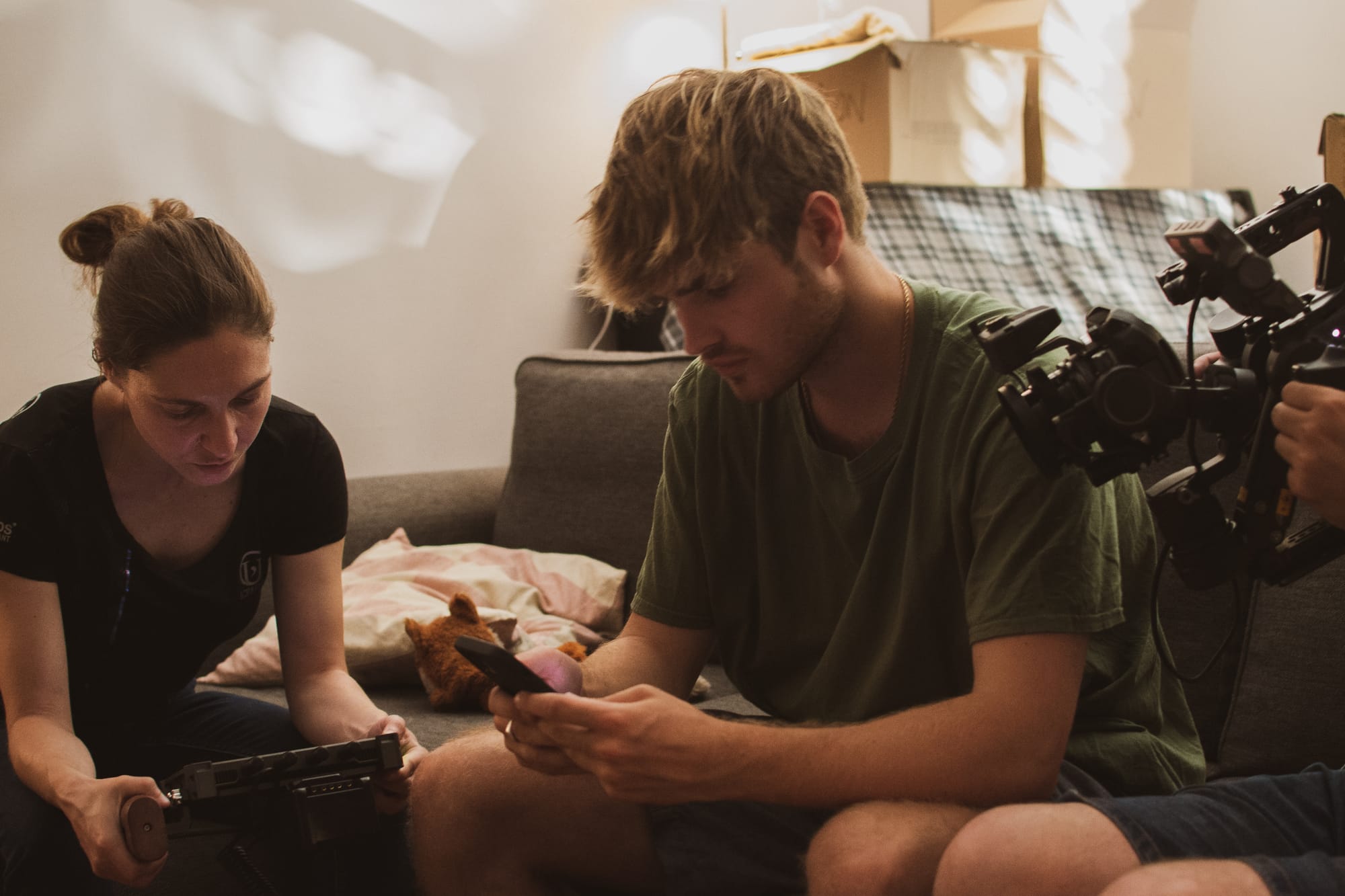
Who are your biggest influences in cinema?
Florence: I truly love James Cameron’s universe particularly Titanic, also all the slasher movies by Wes Craven or John Carpenter before him, but my truly great influences are David Lynch and The Coen brothers.
Esteban: I’d say my biggest influences in cinema are David Fincher and Christopher Nolan. Then, in a completely different style, I’m also deeply inspired by ZAZ, Monty Python, Alain Chabat, and Judd Apatow.
Can you share the story behind your film ?
Florence : Esteban and I met on an acting workshop at the end of 2021. We both had different universes but we really get along with each other and had a real taste to write stories. I had written script before for theatre and cinema and Esteban wanted to direct a short movie different from his comic videos on social media. I also would like to share his skills so we thought about a story to mix our different interests. Esteban told me about the Gabby Petito case at the beginning of 2022, a story I completely ignored… and I was terrified and fascinated by it.
Esteban : I’d also add that it was a time when I really wanted to explore the drama/thriller genre, and I knew that the world of social media — and the dangers that come with it — could be a strong driver for stories in that space. As someone who’s quite interested in true crime, I came across the Gabby Petito case, and that story deeply moved me.
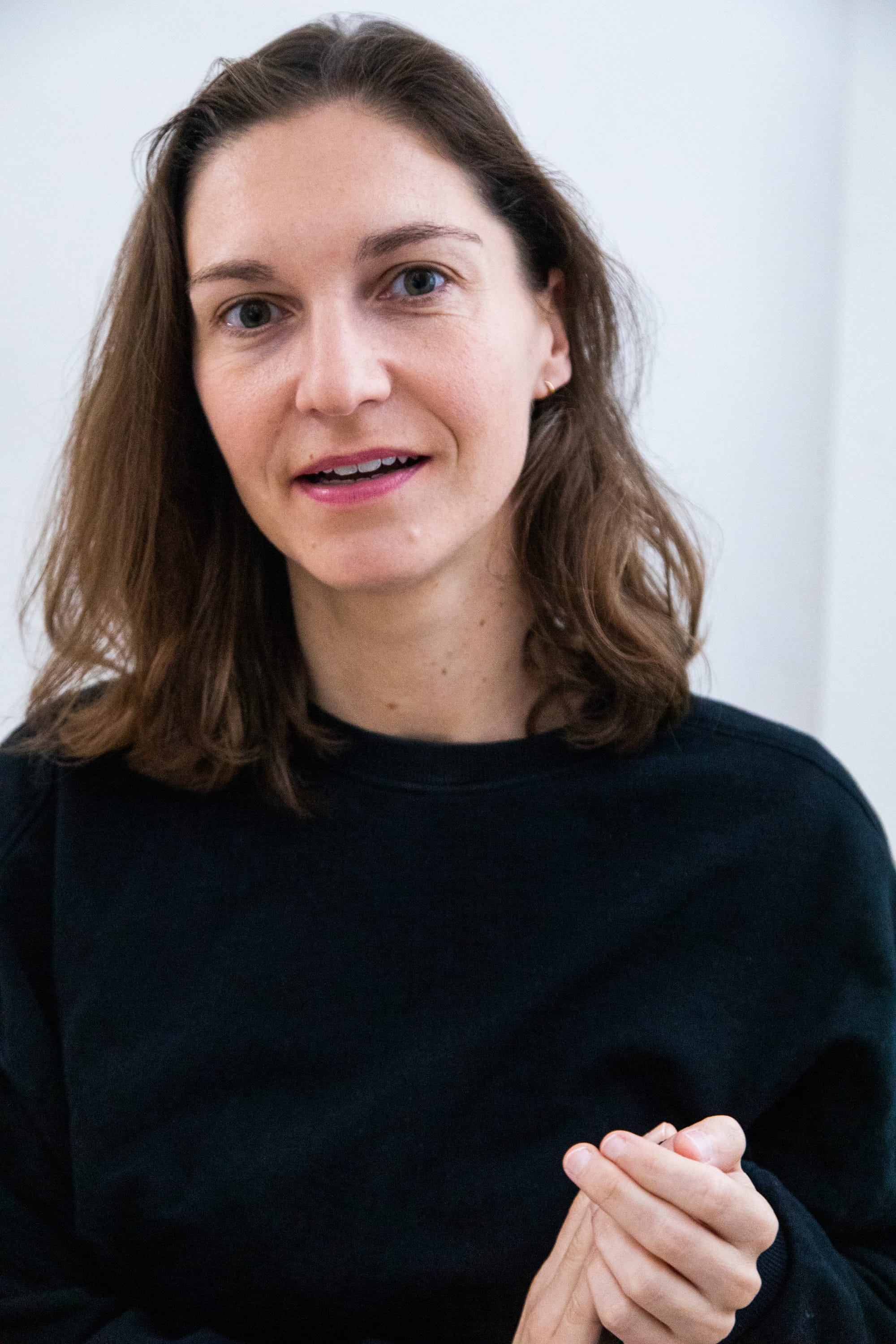
What message or emotion do you hope the audience takes away from it?
Florence : Maybe to be thrilled by the capacity of people online to disorient truth, reality or the life of a person. We wanted the audience to doubt all along of the main character, is he guilty or not?
Esteban : As Florence mentioned, the court of public opinion is incredibly powerful nowadays. Regardless of what a legal verdict says, it’s often the public that decides whether you’re guilty or innocent. That can have positive effects — it has helped people speak out and brought certain individuals to justice. But we’ve also seen, in the context of murder or missing persons investigations, that as soon as a suspect’s name comes up, the internet immediately points fingers. For hours, sometimes even days, that person can go through absolute hell — even if they have nothing to do with the case. People online will dig up their past, twist their words, build theories just to paint them as the culprit. That’s the danger I want people to walk away with and reflect on.
If you could work with any filmmaker, past or present, who would it be ?
Florence: Xavier Giannoli, Xavier Dolan, Martin Provost, Jeanne Herry, Agnès Jaoui… and François Truffaut if we went back to his time.
Esteban: Much like Florence, I’d love to work with Xavier Giannoli or Xavier Dolan! But also Alain Chabat, Quentin Dupieux, and Claude Sautet if it had been back in his time.
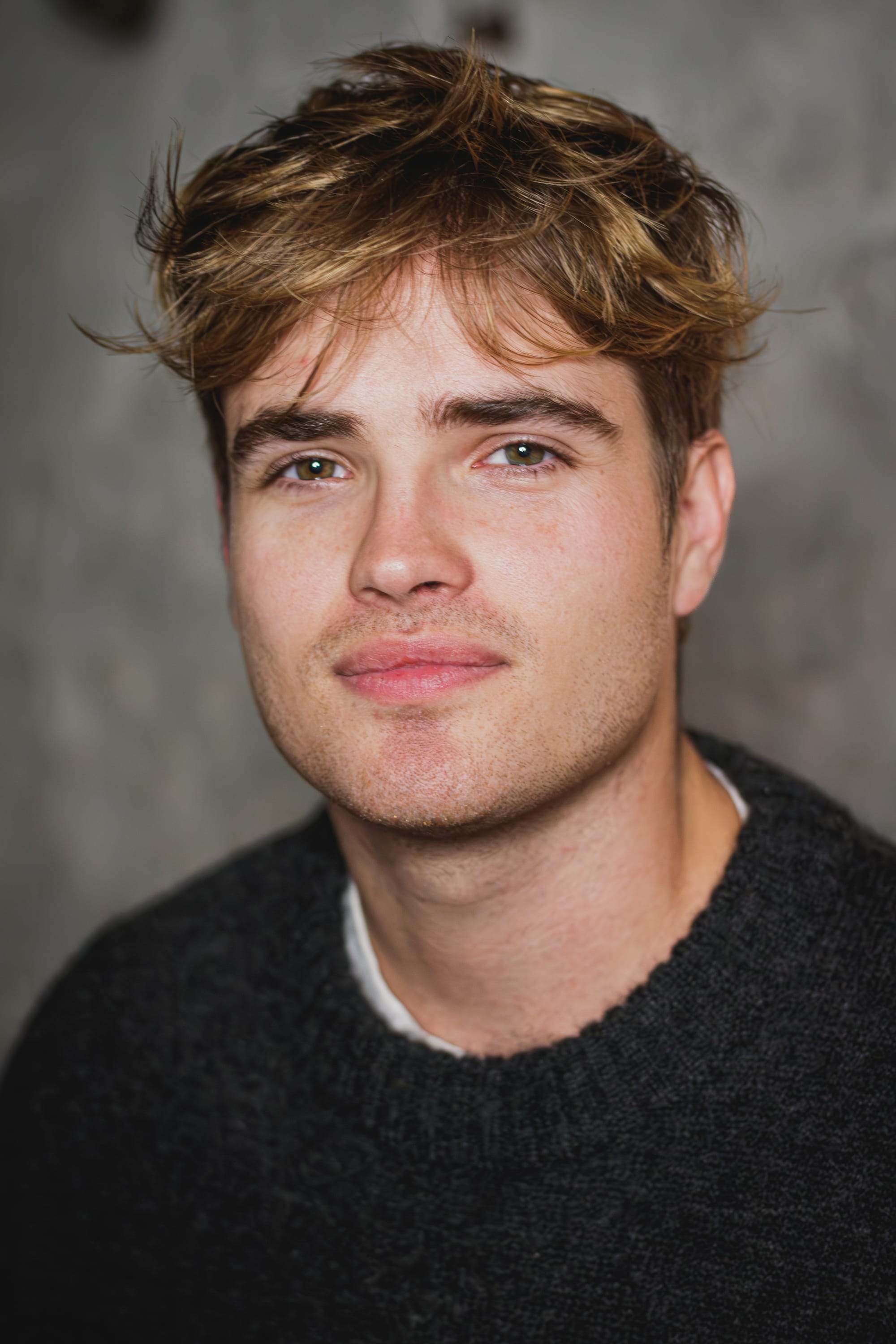
Are there any suggestions for first-time filmmakers ?
Florence: If the need is here, the constant work and a deep love to build stories, so tell it, do your film, no matter the time it takes, the money you have to find, passion is stronger than all kind of difficulties met on your way...
Esteban: I agree with Florence, and I’d add that you should tackle subjects that speak to you deeply. Don’t try to copy things that have already been done. I often hear young filmmakers, who haven’t made a film yet, say "I want to make a film like so-and-so." But to me, that’s more limiting than anything else. First, because so-and-so already exists and is making films. And second, because the bar is set too high. You shouldn’t expect to make something perfect. That doesn’t exist, and even less so for a first film!

